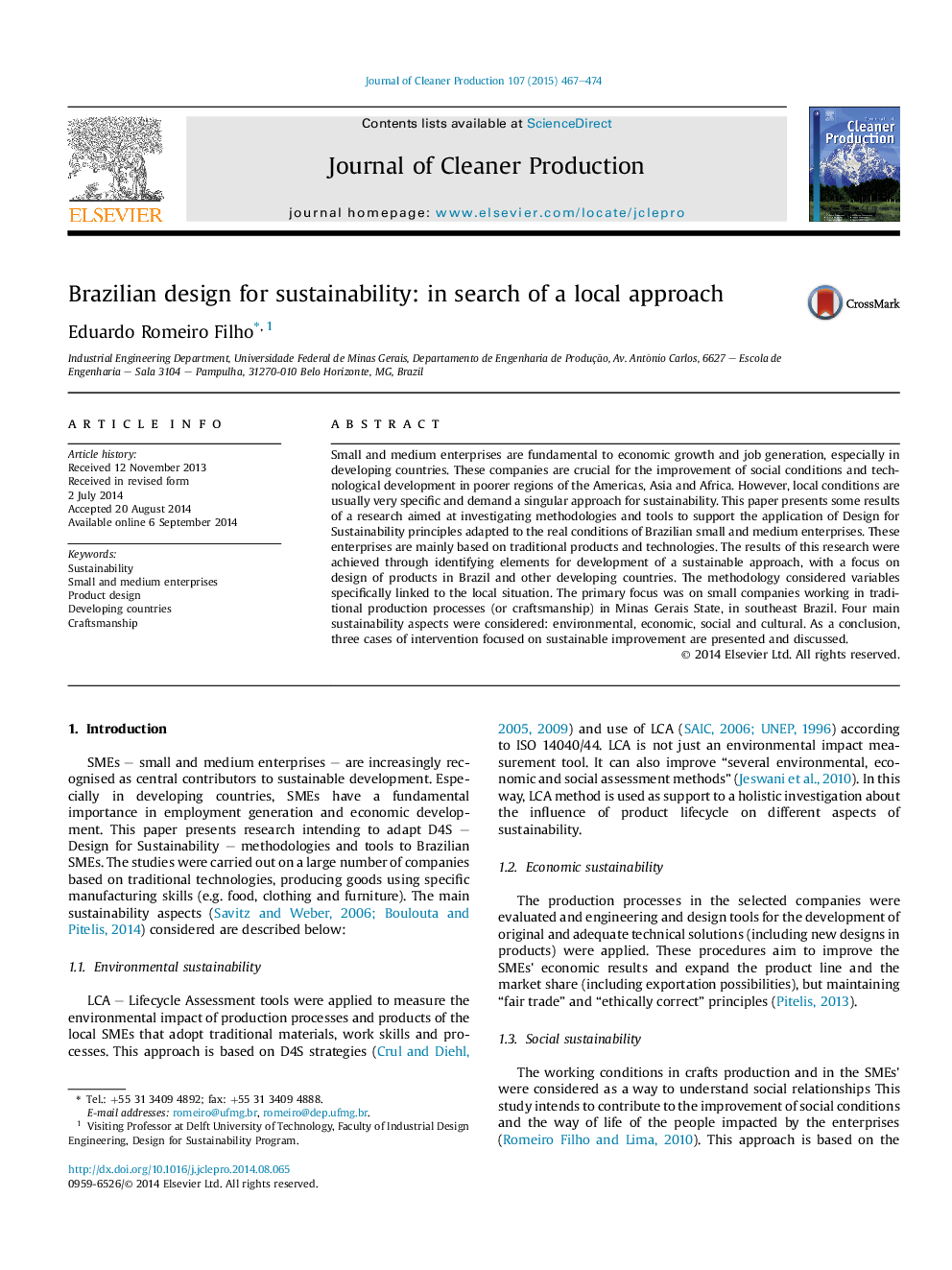| کد مقاله | کد نشریه | سال انتشار | مقاله انگلیسی | نسخه تمام متن |
|---|---|---|---|---|
| 1744437 | 1522139 | 2015 | 8 صفحه PDF | دانلود رایگان |
• Four sustainability aspects considered: environmental, economic, social and cultural.
• Local tradition and people skills are considered in the new product development.
• Local solutions can be an alternative to development based on industrial production.
• SMEs are traditionally responsible for most of the jobs in the developing countries.
Small and medium enterprises are fundamental to economic growth and job generation, especially in developing countries. These companies are crucial for the improvement of social conditions and technological development in poorer regions of the Americas, Asia and Africa. However, local conditions are usually very specific and demand a singular approach for sustainability. This paper presents some results of a research aimed at investigating methodologies and tools to support the application of Design for Sustainability principles adapted to the real conditions of Brazilian small and medium enterprises. These enterprises are mainly based on traditional products and technologies. The results of this research were achieved through identifying elements for development of a sustainable approach, with a focus on design of products in Brazil and other developing countries. The methodology considered variables specifically linked to the local situation. The primary focus was on small companies working in traditional production processes (or craftsmanship) in Minas Gerais State, in southeast Brazil. Four main sustainability aspects were considered: environmental, economic, social and cultural. As a conclusion, three cases of intervention focused on sustainable improvement are presented and discussed.
Journal: Journal of Cleaner Production - Volume 107, 16 November 2015, Pages 467–474
